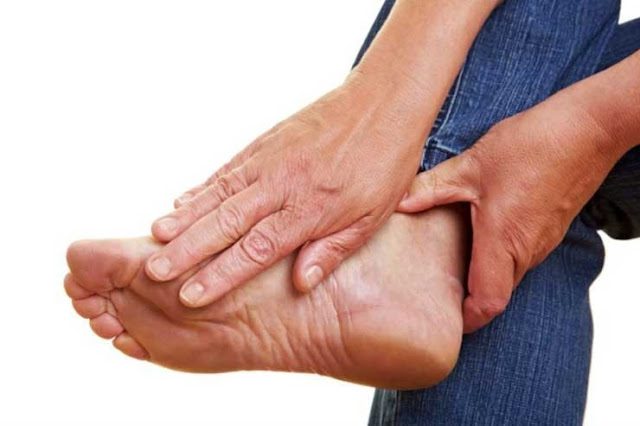According to the National Institute of Neurological Disorders and Stroke, about 20 million people living in the U.S. currently experience some type of peripheral neuropathy. This is a condition that results from damage to the peripheral nervous system. In a nutshell, there is a complex system of communications that occurs between the central nervous system (i.e. brain and spinal cord) and other parts of the body. Nerves send signals through the spinal cord back to the brain about pain and other feelings (i.e. your feet are cold). These messages help your brain know what is going on throughout your body.
What is Neuropathy?
The term "neuropathy" refers to the presence of nerve damage or disease. Patients living with this condition can experience significant levels of pain and require physical therapy. Diabetic patients are particularly at risk for this condition, but other patients may also experience the symptoms described below.
The Facts About Peripheral Neuropathy
When you have peripheral neuropathy, you can experience different things, everything from numbness and tingling to pricking sensations and muscle weakness. Some parts of your body may become extra-sensitive, which creates a distorted sense of touch, or allodynia. When this occurs, your body may experience pain as a response to an external factor that would not cause pain in a person without neuropathy. More serious symptoms that peripheral neuropathy creates in some patients is burning pain, which isn't good for wellness, muscle wasting, paralysis, or organ or gland dysfunction. If there is damage to nerves associated with your internal organs, you may have trouble with digestion, sweating, sexual function, and urination. In this sense, this condition is serious and can affect your overall quality of life. The gravest cases are when patients have difficulty breathing or experience organ failure.
You Need Working Nerves
It's difficult to experience the loss of any normal functions in your body, especially if they change your quality of life. Some conditions that you may develop will stabilize and others will worsen over time. If you suspect that you have neuropathy, it's important to talk to your medical provider as soon as possible. Symptoms that do not seem that important can indicate that something more significant is going on in your body.
Nerves and Muscles
Your peripheral nerves will transmit important messages to your brain. They also carry signals to the brain and spinal cord that result in movements. Any damage to the peripheral nervous system disrupts these important linkages. In the case of peripheral neuropathy, the connection gets distorted and your brain and spinal cord don't get all of the information they need to exchange with other parts of your body.
Learn More
Some patients manifest the symptoms of peripheral neuropathies over days, weeks, months, or years. These can seem to creep up on you until they become serious. They have their own forms and may present various patterns. They can be short-term or long-term. In the chronic forms of this disease, the subtle symptoms move along at a slow pace and worsen over time. You may even have temporary relief between bouts of the condition and then experience them in greater intensity at a later time. It's ideal if your body reaches the plateau stage, and you reach the point where you can manage the symptoms with an adjusted lifestyle. Visit their website.
Diabetics Beware
Patients from all walks of life who experience peripheral neuropathy may seek alternative therapy. For example, they rely on physical therapy and other treatments to manage their symptoms. Diabetic neuropathy is one of the common forms of this disease. It usually occurs in a growing pattern. In the early stage, the first nerve fibers that stop working right are those that move the furthest from the brain and the spinal cord. Patients will feel pain and numbness in both feet and then gradually feel the same things in both legs. Later, they may experience discomfort in their arms, hands, and fingers. It's important to understand the extent of peripheral neuropathies before they completely change your daily routines.






